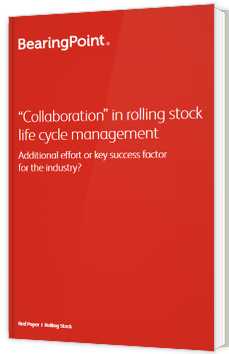

The rolling stock industry

"The rolling stock industry has undergone tremendous changes in the last decade and will continue to do so.The deregulation and liberalization measures of the EU in the last decades have tremendously changed the roles, tasks and interests within the railway industry. This paper examines the impact of these policy changes on rolling stock management with all involved parties over the whole life cycle: suppliers, manufacturers, railway undertakings, maintenance operators etc.
Until the 1980s, the rail industry was seen as a core national asset by EU countries. However, since that time perceptions have changed. There are two main reasons for this:
1. Railway undertakings didn’t operate profitably, which required more and more financial support by national states.
2. Quantitative and qualitative requirements to rail business in cargo and passenger transport increased, which was difficult to fulfil for so-called “civil service rail organizations” in their existing organizational structure.
The rolling stock business was structured relatively simply. Each country had its national rail operator. This company specified the rolling stock and bought it from a manufacturer. Rolling stock was set in operation and the operator dealt with the maintenance tasks – being in charge for the whole life cycle of it."